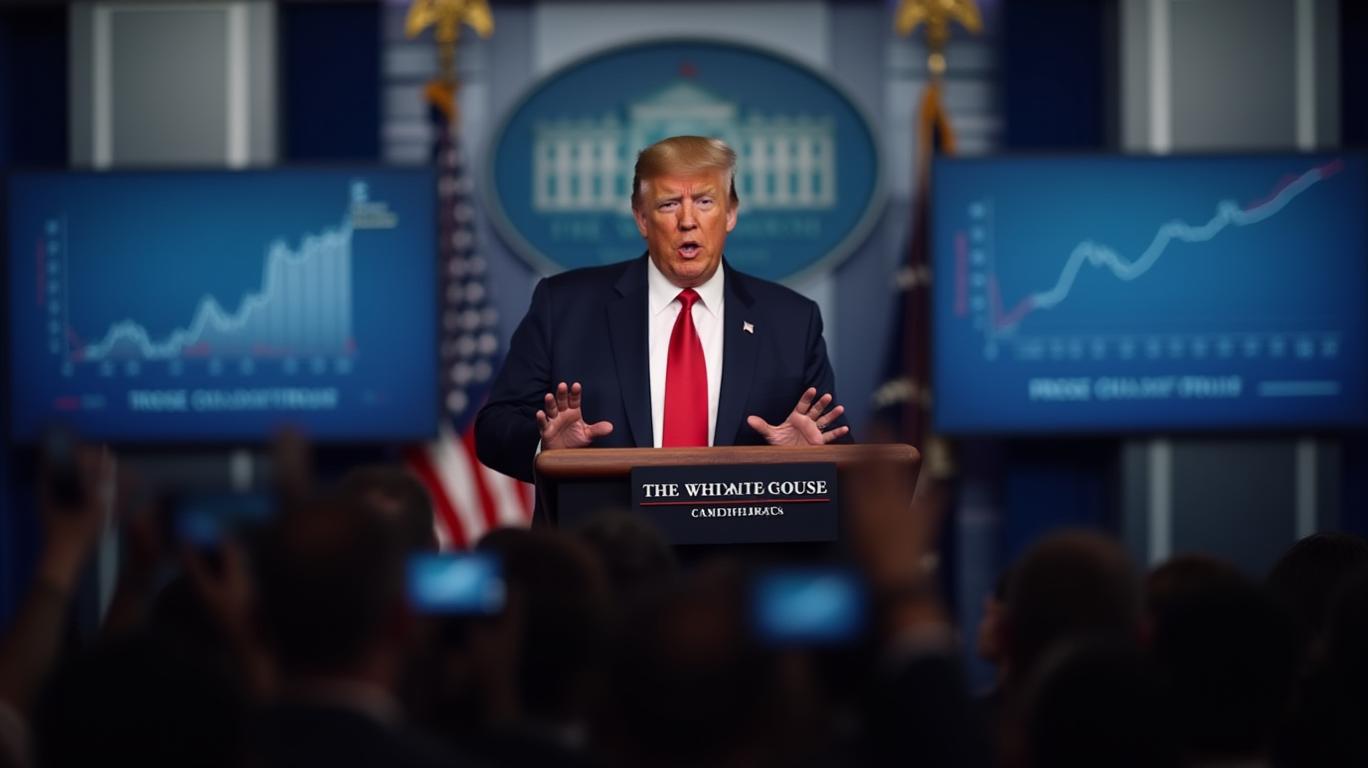Trump Defends Tariffs Amid Market Drop, Predicts Prosperity
President Trump, on April 3, maintained his stance on the tariff plan he announced the previous day, despite a significant drop in the U.S. stock market. He asserted that the plan, which imposes tariffs ranging from 10% to 50% on over 100 countries and regions, would ultimately lead to a prosperous United States. The European Union faces a 20% tariff, Japan 24%, and South Korea 25%.
Trump's optimism was unwavering despite the market's reaction. When questioned about the market's response, he stated, "I think the progress is very smooth. You have never seen such a situation. The market will prosper. The stock market will prosper." He further emphasized that the nation would thrive under these conditions.
The tariff plan, which targets a wide array of countries and regions, is part of Trump's broader strategy to rebalance trade relations. He believes that by imposing these tariffs, the U.S. will be in a stronger position to negotiate trade agreements. Trump's confidence in the plan is rooted in his belief that other nations are eager to engage in discussions with the U.S., which he sees as a sign of the country's economic strength and influence.
Trump's stance on tariffs has been a contentious issue, with critics arguing that such measures could lead to retaliatory actions from other countries, potentially harming U.S. exports and the broader economy. However, Trump remains steadfast in his approach, asserting that the tariffs are necessary to protect American industriesAIG-- and workers.
Trump's Commerce Secretary, Wilbur RossROST--, echoed the president's sentiments, stating that the administration is unlikely to reconsider its trade policies. Ross believes that the tariffs will force other countries to open their markets to more U.S. goods, leading to a "reordering" of global trade. He also acknowledged that negotiations with other countries are possible, but only if they address their trade barriers and non-tariff barriers.
Ross's comments suggest that the administration is prepared for a prolonged trade dispute, with the hope that other countries will eventually seek to negotiate favorable trade deals with the U.S. to avoid the impact of the tariffs. The administration's strategy is focused on rebalancing trade relations and protecting American industries, with the hope that other countries will engage in negotiations to mitigate the impact of the tariffs.
In summary, despite the market's negative reaction to the tariff plan, Trump remains optimistic about its potential benefits. He believes that the tariffs will lead to more favorable trade agreements and ultimately result in a prosperous U.S. economy. The administration's strategy is focused on rebalancing trade relations and protecting American industries, with the hope that other countries will engage in negotiations to mitigate the impact of the tariffs.

Stay ahead with real-time Wall Street scoops.
Latest Articles
Stay ahead of the market.
Get curated U.S. market news, insights and key dates delivered to your inbox.



Comments
No comments yet